Peter’s Blog, August 8th — Alright, Controversy!!
I’m packing and getting ready for the big book launch over the next two weeks in SF and the Bay Area, so will keep this short. The schedule is listed below in my previous Peter’s Blog, if any of you can make it to any of the classes or book signings. There are still a few seats left for the classes but you’ll have to call the venues for more info.
But this week I think we’re going to have to address the controversy that emerged in the Comments section of my last posting, thanks to someone named Scott007 and a few other voices, including another Scott — Scott123. It’s actually kind of exciting — apparently, I’ve pissed a few people off and am not sure why but would sure like to find out what I did (if you aren’t up to speed, please check out the Comments thread in the recent Peter’s Blog — last time I checked there were 14 comments). So, what I’d like to do is open up the discussion here on this posting, via a new Comments section, the one on this posting, and ask any and all of you to chime in. If I’ve trashed NY pizza culture, as Scott123 accuses, or passed on misinformation about pizza methodology or dough science, let’s get it all on the table so we can clear it up. Scott(s), how about getting specific and make your case — I hear that 123 is a well respected pizza authority so maybe I have something to learn from you. None of us have a monopoly on the whole truth and Pizza Quest was created to be a forum for the sharing of our mutual pizza journeys and celebration of artisanship. I’m open to learn from you but also would like to know the actual specifics of where you think I went wrong, rather than generalized attacks. The only rule for this discussion is civility — I reserve the right to edit out ad hominum attacks, unnecessary language, and nasty language. But differences of opinion — sure, I’m okay with that. So, for those who want to play along, go ahead and express yourselves — but let’s do it respectfully, please.
I won’t be posting another Peter’s Blog till I return at the end of the month, but will try to join in the Comments section from the road if my i-Pad and local WiFi will allow it. In the meantime, let’s get to the heart of it — we’re on a search for the truth (or, perhaps, truths). Let the discussion begin….
Recent Articles by Peter Reinhart
- “Tommy & Atticus” in Redondo Beach, CA. A Sourdough Success Story
- Howard Brownstein on Turnaround and Crisis Management
- Randy Clemens and Forest Farming in Uruguay — The Back to The Earth Movement is Back!
- It’s not too late to chase your dreams: “Pizza From the Heart” A New Book by Paulie and Mary Ann Gee
- Kyle Ahlgren on the Artisan Baking Center Online Classes (and a special offer)
- Multi-James Beard Nominee Cathy Whims of Portland’s Nostrana and her Brand New Book
Add Comment
You must be logged in to post a comment.




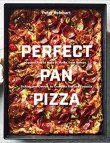
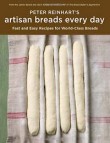

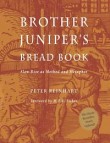
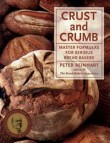
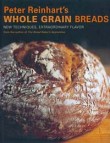
Peter,
First off – culture is a funny thing. East Coast v West Coast, North v South, California v France… Just a fact of life which makes life on this rock interesting!
I for one want to thank you for bringing up the long, cold fermentation into to my repertoire! It has made a huge difference in my doughs and their quality. And when using for bread, even my kids eagerly eat whole wheat because it has, what do they call that – oh yeah – Flavor! As for Pizza – night and day.
Rock on my friend! I look forward to your next book!
Hey, Scott123,
Thanks for sharing your delightful prose and encyclopedic knowledge.
Concerning pizza stones for home ovens, I’m late to the party on this one. If they’re dead as hoop skirts, what replacement(s) are you recommending?
Thanks,
Allen
Hi, TonyC, etc.,
I recently confirmed with a food scientist that cold temperature slows down yeast metabolism a lot more than simple enzymatic activity, such as that of amylase and protease. Thus it seems to me the chief virtue of a cold fermentation of a yeasted (non-levain) dough is that it slows down the yeast long enough for the enzymes to work the amount one desires.
So if one hasn’t added yeast to a dough, I don’t see the point of a cold resting period…might as well let it sit at room temp. (call it a “soaker”) and get its enzymatic work done in less time.
Allen
Hi, fellow bread heads,
Cook’s Illustrated did a side-by-side comparison of autolyse with and without salt…and found significantly better results without (i.e., adding the salt after).
Best,
Allen